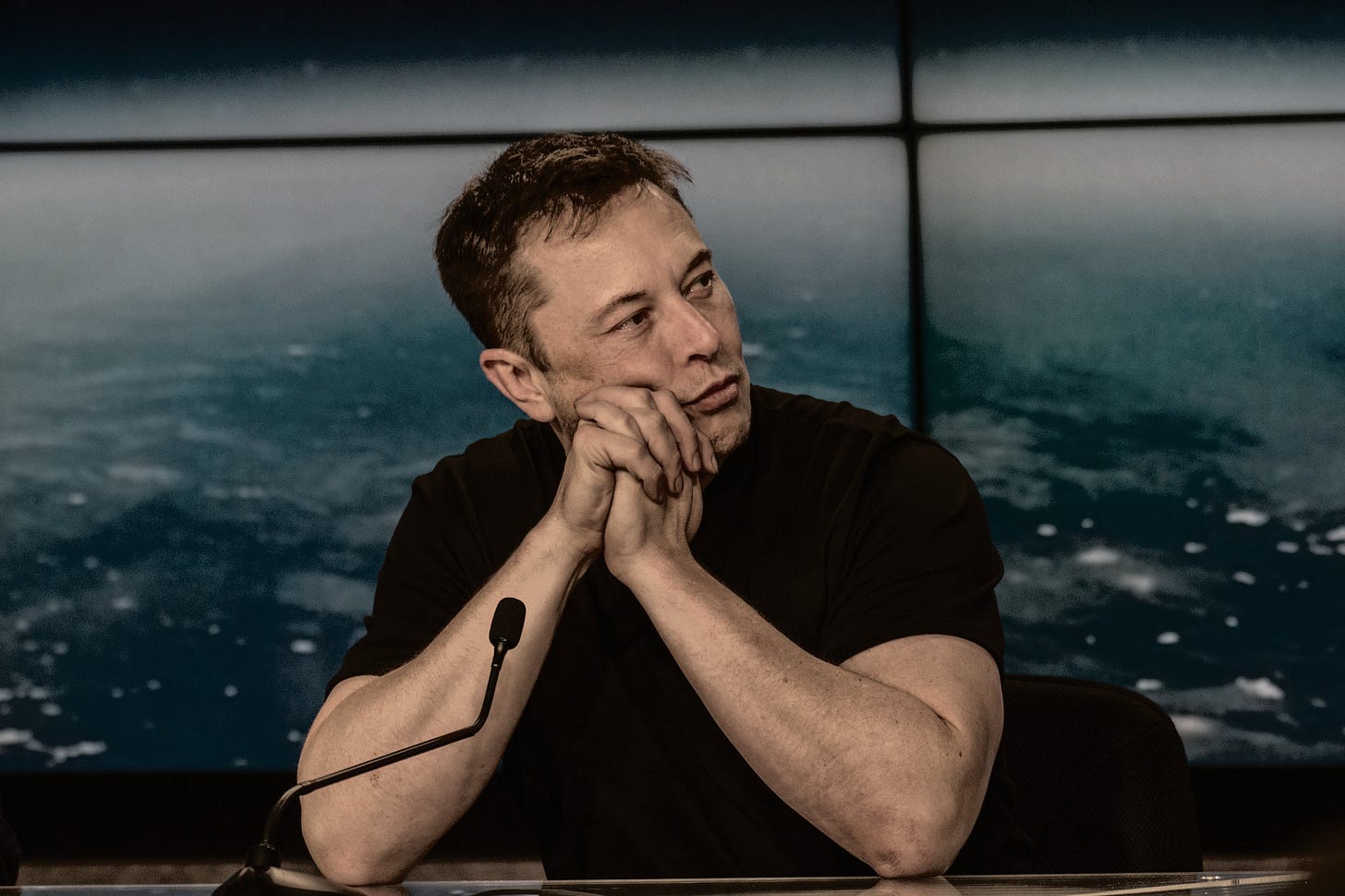
If you’re a subscriber and have been enjoying this newsletter recently, please take a moment to forward it around to family, friends, neighbors, or anyone else you think might like it too. Just use the green button below. Thanks!
Recently, Elon Musk, the eccentric retroactive co-founder and CEO of the electric carmaker Tesla, supposedly bought some ventilators to help California patients who were hospitalized with coronavirus. But no ventilators actually made it to any hospitals — and somehow that’s not the only coronavirus-related PR scam Musk has overseen.
But Musk is also simultaneously running a different scam that could be very costly to some taxpayers in the Midwest: Trying to auction off a new Tesla factory, playing states and cities off against each other in order to get as much public largesse for the project as possible.
It’s a grift he’s successfully employed before, so everyone in the Midwest should beware.
Musk has been publicly musing about building a new factory for Tesla Cybertrucks somewhere in the middle of the country. "Scouting locations for Cybertruck Gigafactory. Will be central USA," he said on Twitter. He told the Wall Street Journal that state incentives will be a factor in deciding where it lands.
While Nashville, Tennessee, has been reported as a possible location, Joplin, Missouri, was first out of the gate with a proposal, offering a whopping $1 billion in taxpayer-funded incentives for the factory. That total reportedly includes both the cost of selling Tesla land at a below-market rate, as well as a host of state and city-level tax breaks, per the Joplin Globe.
Back in 2014, Musk also made a big show of shopping around in several states for a battery factory, eventually winning $1.3 billion in subsidies from Nevada. The catch, however, was that the company likely wanted to be in Nevada the whole time, for reasons that had nothing to do with taxes. It simply made good business sense to build there. But the public auction got Nevada to pay up.
Musk himself has admitted that incentives are not necessary, merely “helpful” for his companies. And that’s the case for most corporate incentives: They have very little role in where a company ultimately decides to locate. They’re just free money for corporations doing what they would have done anyway.
Adding some insult to injury, Tesla’s Nevada factory didn’t generate the capital investment or job numbers promised. Overall, Tesla has received more than $2 billion in subsidies from state and local governments, and more than half a billion more in subsidies and grants from the federal government.
Of course, there are far worse things to subsidize than electric cars. At least Tesla isn’t an oil company, or something similarly unhelpful to climate change or the local environment. But that doesn’t make Musk’s tactics any better or lessen the impact when local governments have to slash their budgets elsewhere in order to make room for corporate giveaways.
It was reportedly CEO Jeff Bezos’ jealousy of subsidies Musk had received that pushed him to look for big tax breaks when Amazon wanted a new headquarters. Now Musk is taking the baton back, ginning up a campaign in which cities and states have to publicly compete against each other for his corporate beneficence, which will push their bids ever higher.
Those cities and states would do well to stay out of the competition altogether.
One more thing: The New York Times had a good piece yesterday on how coronavirus has affected the economy in the small New Hampshire town of Bristol. About 10 percent of the town’s 3,300 people is employed at one auto parts factory owned by a German conglomerate, which is now cutting jobs due to the pandemic halting global auto sales.
What struck me is a point not made in the story: The fact that many other events could have delivered a similar shock to the town. By becoming overly reliant on one employer, Bristol, like so many places across America, was setting itself up for one economic change to decimate everything. If it wasn’t a pandemic, it could have been another factor affecting global supply chains, or simply a change of heart in a corporate boardroom.
The piece should be read not just as a sad tale of a preventable pandemic, but as a warning against building an economy based on any one employer.
Thanks for reading this edition of Boondoggle. If you don’t subscribe already, just click the green button below.
If you liked this post, take a moment and click the little heart under the headline or below. It helps.
If you’re already a subscriber, please forward this around to friends, family, neighbors, or whoever you think might like it, and tell them to sign up too.
Finally, if you’d like to pick up a copy of my book, The Billionaire Boondoggle, go here. Thanks again!
— Pat Garofalo



"The piece should be read not just as a sad tale of a preventable pandemic, but as a warning against building an economy based on any one employer." I'm curious about this... to some degree, this isn't intentional, right? Most small towns can only do so much to diversify their employers. And of course, you're not an advocate of towns offering lots of incentives to entice employers. I feel like they don't intentionally "base" their economy around one employer, they just don't have that many tools to avoid the issue, and having one big employer is better than having zero big employers?